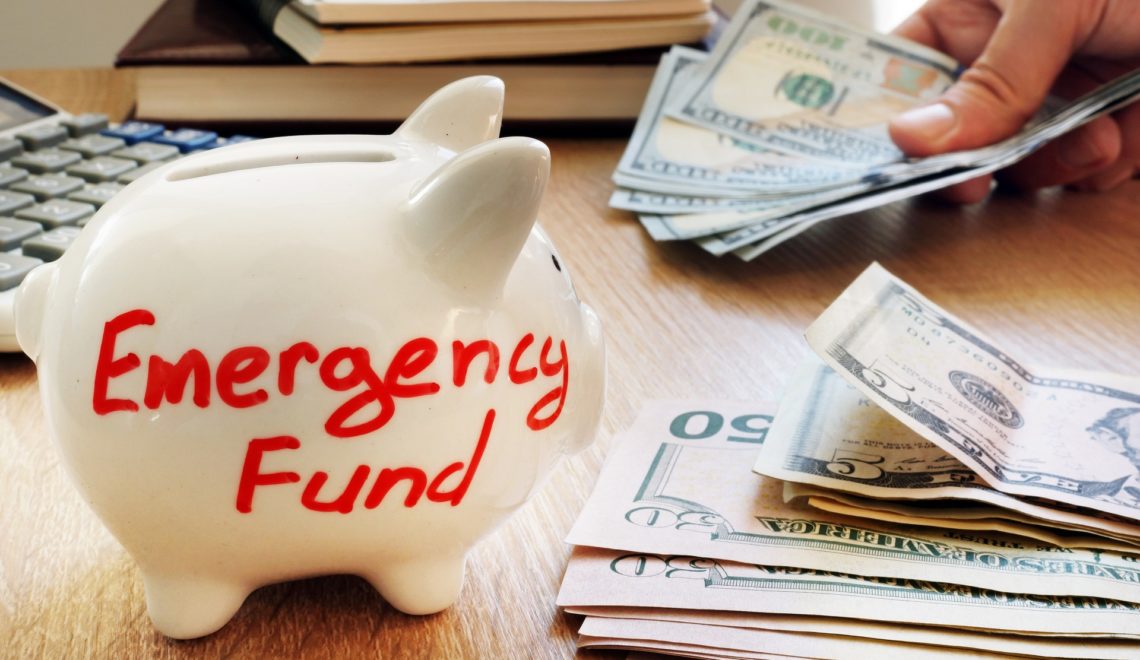
The common phrase many have heard growing up is that “you have to save for a rainy day”. This is really saying that you need to be ready for when the days are not all sunny and going right. So how do we prepare for a financial, rainy day? We do this through what is called an emergency fund.
An emergency fund is just that, funds, or savings that are set aside strictly for an emergency. This does not mean that you dip into it to buy that pizza because your budget ran out, or to go on a trip because the balance got high. This is a saving for just emergencies. This is when your fridge breaks or you need to fix your car so you can keep working; true emergencies that aren’t considered in the normal budget but have to be done.
How much should I set aside?
As a rule of thumb, you should be setting aside 3 – 6 months’ worth of expenses. This is to weather the event that you lose your job and are no longer pulling in enough for your required living. Dave Ramsey suggests starting with $1,000 in the fund. This is his baby step 1. However, after paying off certain debts, his baby step 3 is to save that 3 – 6 months of expenses.
What is 3 – 6 months worth of expenses? Well, consider if you have a $1,000 mortgage or rent, $200 student loan payment, $300 car payment, $100 utilities, and $200 for food, you will need $5,400 to $10,800 to cover those in the event of a job loss. This is the more, worst-case, and something to strive for but at least start with the $1,000 so when your car breaks you can still get to work.
Where should I store the money?
The thing with emergencies is that they can happen at any time and you need to be ready. This means your money needs to be liquid and available for when you need it. So store your emergency fund in an FDIC insured bank in a high yield interest account.
You may think, or be thinking, that I’ve had my money sit for years with no emergency, so why don’t I invest it in something? This may be true, your money could be making you more money but you should really be thinking of your emergency fund as an insurance policy and they don’t make you money. Investing in stocks is risky and you could watch your fund dry up in an emergency or recession. Bonds could be the same way. If you put enough away, however, you could drop portions of your fund into a high yield CD. Though your money is locked away, you will be reaching for more yield but some CDs will allow you to pull your money out for a nominal fee, maintaining the liquidity.
How I manage my emergency fund
When I got out of college I built up a $5,000 emergency fund over time. This was just a target number and was greater than $1,000. Over 4 years, I didn’t need the money and it got hard watching it sit and not do anything, but I stayed vigilant. I did, however, use some at the end to help pay off the rest of my student loans just to turn around and build it up again. Now, I have a house and a wife to support. I’ve built that fund to over $10,000. When I saved a couple thousand over five grand, I would sack five grand into a high yield CD just to get a little more when the interest rates were at least 0.25% difference. As of writing, I have the whole ten grand in two different CDs as to spread out the maturity, however, I have over five grand in my normal savings. I save my money with Ally Bank that offers above 1% rates. This gives me an immense sense of financial security and is well worth it.
Am I alone?
From a survey done by BankRate in January 2020, they found that less than half of Americans would be ready for a financial emergency. Lower income households are more likely to have to borrow money in an emergency.
You can see more from their analysis in this post.
Are you ready for an emergency?
It’s harder to save when living paycheck to paycheck, but cutting somewhere to save will help get you out of that rut and avoid credit card debt (aka. high-interest rates). There are many Americans out there even making $100,000 plus and still wouldn’t be ready for an emergency. Open up an account today and prepare for that emergency!

